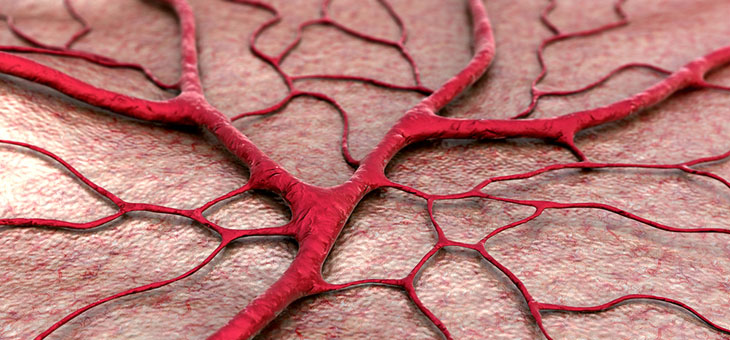Leaky blood vessels in the brain could signal the early onset of Alzheimer’s disease well before the toxic amyloid or tau proteins associated with the disease begin to appear, according to new research.
It is hoped the University of Southern California findings (USC) could help with earlier diagnosis of Alzheimer’s disease and suggest new targets for drugs that could slow or prevent the onset of the disease.
USC’s five-year study, which involved 161 older adults, showed that people with the worst memory problems also had the most leakage in their brain’s blood vessels – regardless of whether abnormal amyloid and tau proteins were present.
“The fact that we’re seeing the blood vessels leaking, independent of tau and independent of amyloid, when people have cognitive impairment on a mild level, suggests it could be a totally separate process or a very early process,” said senior author Berislav Zlokovic. “What was surprising was that this blood-brain barrier breakdown is occurring independently.”
In healthy brains, the cells that make up blood vessels fit together so tightly they form a barrier that keeps stray cells, pathogens, metals and other unhealthy substances from reaching brain tissue. Scientists call this the blood-brain barrier. In some ageing brains, the seams between cells loosen, and the blood vessels become permeable.
“If the blood-brain barrier is not working properly, then there is the potential for damage,” said co-author Arthur Toga.
“It suggests the vessels aren’t properly providing the nutrients and blood flow that the neurons need. And you have the possibility of toxic proteins getting in.”
Participants in the study had their memory and thinking ability assessed through a series of tasks and tests, resulting in measures of cognitive function and a “clinical dementia rating score”.
Individuals diagnosed with disorders that might account for cognitive impairment were excluded.
The researchers used neuroimaging and cerebral spinal fluid analysis to measure the permeability, or leakiness, of capillaries serving the brain’s hippocampus, and found a strong correlation between impairment and leakage.
The researchers cautioned that their findings represent a snapshot in time. In future studies, they hope to get a better sense of how soon cognitive problems occur after blood vessel damage appears.
Do you feel as though researchers are getting closer to a cure for Alzheimer’s? How long do you think it will take before scientists are able to eradicate the disease?
Related articles:
Cost of drug leaves lives at risk
Hospital patients lack support
Health myths busted

